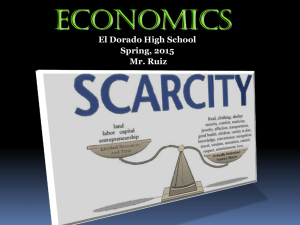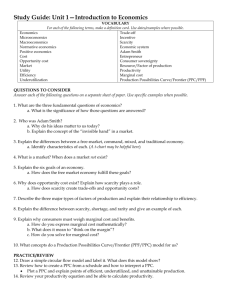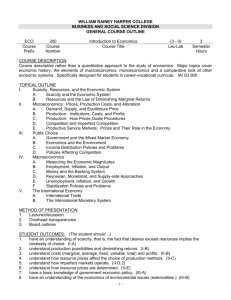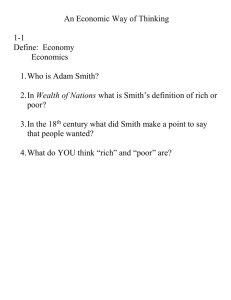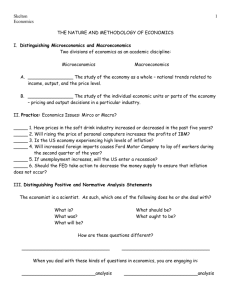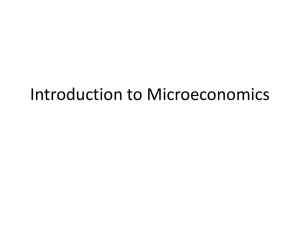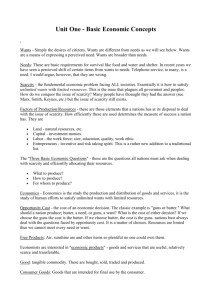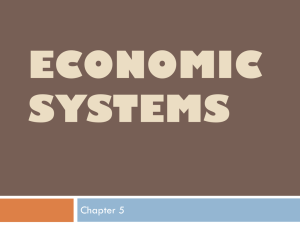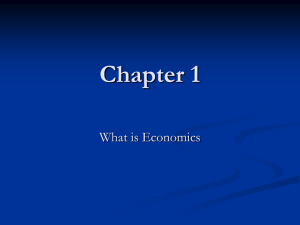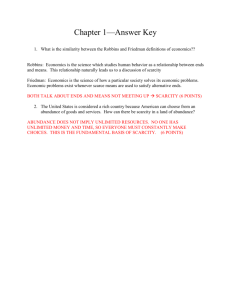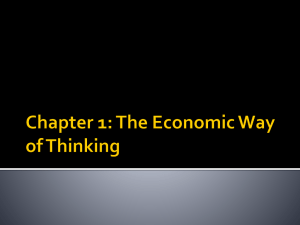File
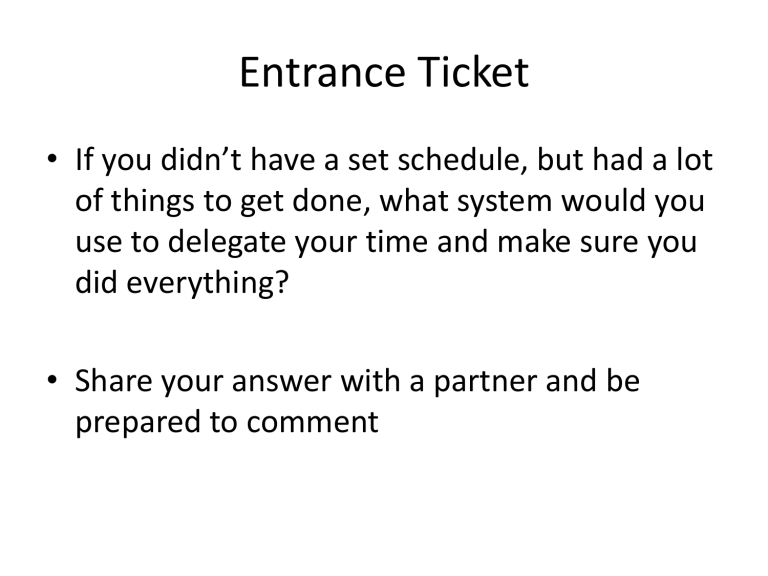
Entrance Ticket
• If you didn’t have a set schedule, but had a lot of things to get done, what system would you use to delegate your time and make sure you did everything?
• Share your answer with a partner and be prepared to comment
• Notes
• Graphing Practice
• HW
• Exit Ticket
Agenda
What is Microeconomics?
• The branch of economics that studies decision making by a single individual, household, firm (“McDonalds”), industry
(“Fast Food industry”), or level of government
“Assume a Can Opener”
• A physicist, a chemist, and an economist are stranded on a desert island with no tools and a can of food.
• The physicist and the chemist each come up with an ingenious mechanism for getting the can open
• The economist merely says, "Assume we have a can opener"!
The Importance of Models
• Economists create models, based on assumptions, in order to simplify a complex world and make it easy to understand
• Ex) When examining how an economy works, an economist might assume that there are only two goods being produced: guns and butter.
The “Ceteris Paribus” Assumption
• A Latin phrase that means while certain variables change, “all other things remain unchanged”
• This is an important relationship if you are testing the relationship of two variables
• Ex) “If the price increases, then the quantity of
Coca Cola purchased decreases, ceteris paribus
But… if the temperature changes then
• What is it again?
Scarcity
Scarcity and Limits on Production
• Scarcity is the condition in which human wants are forever greater than the available supply of time, goods, and resources
• So…because of scarcity, a company or economy can’t produce unlimited quantities of all goods
The Production Possibilities Curve (PPC)
• A curve that shows the maximum combinations of two outputs an economy can produce in a given period of time with available resources and technology
• Three key assumptions
– Fixed Resources: the amount of resources (e.g. workers) remains the same
– Fully Employed Resources: the resources available are used to greatest extent (no waste)
– Technology Unchanged: technology, which affects how goods are produced, remains the same
“Guns and Butter” (copy in notes)
What happens when the economy delegates more workers to one output?
This model helps us consider what opportunity costs are associated with transferring the economy’s resources from one industry to another
To calculate opportunity cost, note the difference from going between points (from A to B)
Naturally, when one industry is given priority, production in the other suffers
GUNS
BUTTER
What is the opportunity cost for producing 40 units of butter?
Graphing Practice
• Try graphing the table and see if you can recreate the one I showed you
• Show it to me when you are finished
Using PPC to delegate study time
• Julio can read 20 pages of economics in an hour. He can also read 50 pages of history in an hour. He wants to spend 5 hours studying.
(Julio is a good student)
Production
Possibilities
Pages of
Economics
Pages of
History
5 hrs reading economics, 0 hrs reading history
A
0
B
100 80
50
C D E F
5 hrs reading history, 0 hrs reading economics
-20
Answers:
Production
Possibilities
Pages of
Economics
Pages of
History
A B C
100 80 60
0 50 100
D
40
150
E
20
200
F
0
250
+50
HW
• Take the information from the table showing relationship between reading for economics and reading for history and create a GRAPH
• Plot the points on the graph and draw a curve connecting the points.
• Label the points that are featured in the table
(A, B, C, etc.)
Exit Ticket
• Other than organizing your study schedule, how else might you use PPC to improve your individual decision making?

